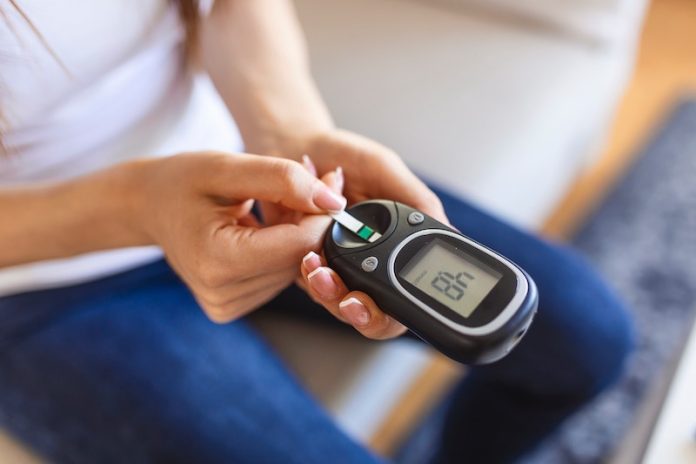
Diabetes is a condition that affects how our bodies handle sugar (glucose). When not well-managed, diabetes can lead to various health problems, including vision issues, nerve damage, kidney problems, and heart disease.
A recent study explored how diabetes and its complications could impact the survival of people with colorectal cancer—a type of cancer that affects the colon or rectum.
The study’s findings suggest that people with both diabetes and colorectal cancer may face a higher risk of early death.
The Study
Researchers led by Dr. Kuo-Liong Chien from National Taiwan University conducted this study.
They gathered information from the Taiwan Cancer Registry Database, which contains data on adults diagnosed with colorectal cancer between 2007 and 2015.
Specifically, they focused on individuals who had undergone surgery to remove their colorectal cancer tumors.
Key Findings
Here are the main findings from the study:
- Diabetes and Survival Rates:
Individuals with uncomplicated diabetes (diabetes without severe complications) had a slightly higher risk of dying from any cause or from cancer, compared to those without diabetes. However, this increase in risk was not significant.
People with complicated diabetes (diabetes with severe complications) had a much greater risk of early death. They were 85% more likely to die from any cause and 41% more likely to die from cancer when compared to those without diabetes.
- Gender Differences:
The impact of diabetes on colorectal cancer outcomes was more noticeable in women.
- Stage of Cancer:
Patients with early-stage colorectal cancer (stage I and II) experienced a stronger connection between diabetes and poorer outcomes.
- Colorectal Cancer Returning:
Patients with diabetes, whether their diabetes was complicated or uncomplicated, had a 10-11% higher risk of colorectal cancer returning compared to those without diabetes.
Why Does Diabetes Affect Cancer Outcomes?
The researchers suggest that high levels of insulin and glucose in the blood, which are common in diabetes, could play a role in the connection between diabetes and worse colorectal cancer outcomes.
Additionally, diabetes often leads to increased inflammation in the body, which may also contribute to these poor outcomes.
What Does This Mean?
This study highlights the importance of managing diabetes effectively, especially for individuals with colorectal cancer.
It’s essential for people with diabetes to work closely with their healthcare team to control their condition and prevent complications. By doing so, they may improve their chances of better outcomes if they are diagnosed with colorectal cancer.
Conclusion
Diabetes is a complex condition that can have a significant impact on a person’s health.
This study shows that diabetes, particularly when it comes with complications, may be linked to worse outcomes for people with colorectal cancer.
However, this does not mean that everyone with diabetes will have these poor outcomes. Managing diabetes well can make a big difference.
This research serves as a reminder of the importance of coordinated medical care to prevent and manage diabetes complications and improve the chances of successful treatment for colorectal cancer.
If you care about cancer, please read studies that low-carb diet could increase overall cancer risk, and new way to increase the longevity of cancer survivors.
For more information about cancer, please see recent studies about how to fight cancer with these anti-cancer superfoods, and results showing daily vitamin D3 supplementation may reduce cancer death risk.
The research findings can be found in Cancer.
Follow us on Twitter for more articles about this topic.
Copyright © 2023 Knowridge Science Report. All rights reserved.



